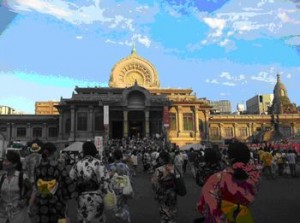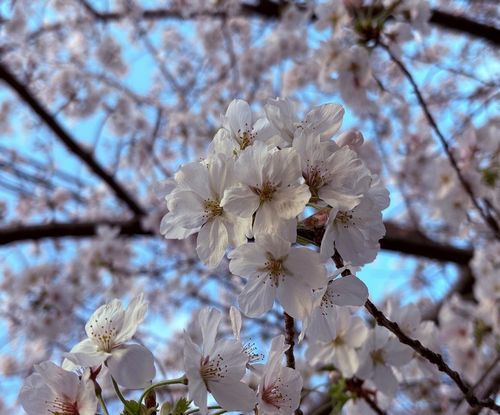It’s been a while since my last blog.
I hope you are doing well over this time of year, where the season is slowly changing.
Today, I’d like to introduce a traditional Chinese festival to all of you.
Have you ever heard of the Mid-Autumn Festival?
最後のブログからお久しぶりですね。
ゆっくりと移り変わるこの季節、皆さんお元気でお過ごしのことと思います。
今日は、皆さんに伝統的な中国の祭りを紹介したいと思います。
“Mid-Autumn Festival(中秋祭り)”って聞いたことありますか?
Literally translated from the Chinese language, the Mid-Autumn festival is held on the 15th day of the 8th lunar month, which often falls between mid-September and early October – the autumn season.
文字通り「Mid-Autumn Festival」は9月中旬から10月初旬にかけた秋、中秋節に行われます。
On or before the day, people of Chinese descent like eating something called ‘moon-cakes’.
Moon-cakes come in a variety of flavors, but personally I like the traditional one best. What’s in it? Here’s a picture…
当日もしくはその前日、中国の人たちは “Moon-cake(月餅)”と呼ばれるものを食べるのです。
月餅にはいろいろな味があるのだけれど、個人的に私は伝統的なものが一番好きです。
中には何が入っているか?こちらが写真です・・・
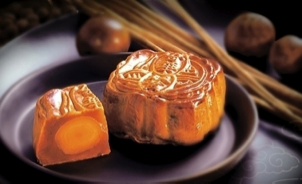
A moon-cake of traditional style is often made of lotus seed paste and a dried yolk.
It’s really delicious but high in calories! In the market for moon-cakes where competition is keen, the traditional ones are no longer enough to satisfy fussy eaters.
Nowadays, you can also find other great alternatives like…
伝統的なスタイルの月餅はハスの種のペーストと黄身で作られています。
とっても美味しいのだけれどとっても高カロリーなの!
激しい競争の月餅のマーケットでは、伝統的な月餅はもはや食べ物にうるさい人たちを満足させるに十分ではなくなってきました。
最近では、このような他に変わるものもでてきています。
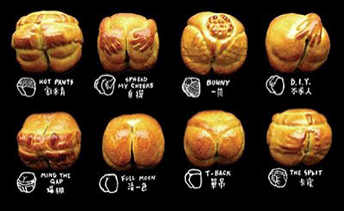

When evening comes, family members gather together for a reunion dinner, where activities like moon-gazing usually follow.
On the streets it’s not difficult to find young kids holding their battery-powered lanterns often made to look like popular cartoon characters.
I still prefer the traditional paper ones though.
When my grandma was still alive, she would close all the windows in her house, lit the paper lanterns she bought and hung them up on the windows’ handles.
Sadly, I heard that such kind of handicrafts is slowly vanishing in Chinese culture as there aren’t many handicraftsmen left who are able to make these.
夕暮れ時が来ると家族で食事するために集まり、月を眺めます。通りには人気のキャラクターに似せて作られたランタンを持った小さい子ども達もいます。
私は昔からある紙のものが好きだけれど。私の祖母がまだ生きていた頃は、家の窓を全て閉め、買ってきた紙のランタンを灯し窓の取っ手につるしました。
悲しいことにこのような手作りのものは、これらを作る職人たちが多く残っていなく中国文化から徐々に消えていると聞きました。
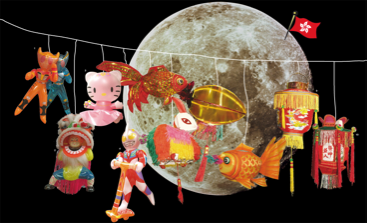
Since I got to Japan, I haven’t really celebrated the festival, but one thing that I did over the past two years was to listen to what to me a meaningful song sung by Teresa Tang.
The lyrics are actually from an ancient Chinese poem by Shu Shi, written in memory of his younger brother who had passed away before him.
Here’s an extract from the poem:
私は日本に来て以来この祭りをちゃんとお祝いしていなかったのですが、この2年間ひとつ続けてしていることがあって、それは私にとってとても意味のあるテレサ・テンの曲を聞くことです。
その歌詞は中国の詩人である蘇軾が早くに亡くした弟の思い出を書いた詩からきています。
こちらがその詩から抜粋したものです:
人有悲歡離合 月有陰晴圓缺 此事古難全 但願人長久 千里共嬋娟
We may have sorrow or joy, be near or far apart,
The moon may be dim or bright, wax or wane,
This imperfection has been going on since the beginning of time.
May we all be blessed with longevity,
Though thousand miles apart we are still able to share the beauty of the moon together
人には悲しみと歓び、出会いと別れがあり、
月には晴れと曇り、満ち欠けがある、
古き世から完全とは難しいものただお互いが長く久しきこと、
今宵君も同じ月を見ていることを願うばかりだ
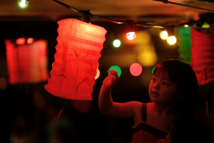
Joyce










